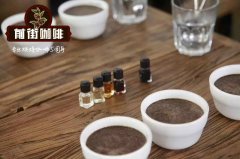A desert ruby submerged by war-Yemen

Professional coffee knowledge exchange more coffee bean information please follow the coffee workshop (Wechat official account cafe_style)
Do you know which country coffee originated? There is bound to be a stir of controversy. It is said that coffee was first found in Ethiopia, but at the same time, Ethiopia's neighbor, Yemen, was also growing and drinking coffee.
The history of coffee dates back centuries, and the study of its roots is based on some incomplete records and fascinating myths and legends. However, we know that in the 15th century, Sufi monks in Yemen began to grow, drink and sell coffee. With the passage of time, Yemen began to produce coffee with distinctive flavor by taking advantage of its unique climate and geographical location.
However, gold always shines, and Yemen Coffee soon occupies a place in the economy, history and culture of the coffee circle. Even the influence of Yemen Coffee still reverberates in the whole world today.
Coffee represented the focus of trade, social and even religion, opened the era of cafes, promoted the export trade of Yemen, and even became a divine medicine for Muslim monks to pray. However, coffee did not only have a good impact on Yemen. Yemen Coffee was also hit by a controversial ban and became a victim of the war.
The complete preservation comes from the ancient varieties spread in Ethiopia, and the endemic coffee varieties that have gradually developed so far are all Arabica "adzuki beans".
Close to the capital Haraz, Bani Matar Bani Mattar (Mattari), Haima (Al-Khaimah) several producing areas, coffee beans are always known as "Shanani" Sanani, the harvest period is mainly from October to December, local farmers harvest 3 times 4 times a year by hand.
The real mocha Matari, the coffee beans produced in the Bani Matal region, are extremely high in circulation and high in price, and are sold under the name "Mattari".
Yemeni coffee has a unique and strong flavor, due to the desert climate and the lack of dry air. Coffee trees only grow in the "Wadi" of Yemen's high-altitude mountains (with an average elevation of 1000m to 2500m). They also use the slopes of the canyon to reclaim terraces to grow coffee.
Except for the rainy season, it is usually in a dry state, and at first glance the land feels very barren, but the water flowing under the riverbed can incredibly produce excellent coffee fruit. The coffee beans produced are high-grade export products, picked by hand, combined with traditional sun-drying treatment, and removed pods with grindstone.
Interestingly, Yemen is not as accustomed to drinking coffee as Ethiopia.
In Yemeni tradition, the shell and pulp of dried coffee are boiled into a drink called Gishr. Ingredients such as bean curd or ginger will also be added to "Keesi" and then boiled into "Qahwa", which is the favorite drink of the local people.
It is precisely because everyone can use the pulp to make drinks, so the coffee trees do not spray pesticides, and the coffee fruits are quite safe and non-toxic.
Important Notice :
前街咖啡 FrontStreet Coffee has moved to new addredd:
FrontStreet Coffee Address: 315,Donghua East Road,GuangZhou
Tel:020 38364473
- Prev

The flavor and taste of Rwandan coffee describes the mysterious and low-key volcanic coffee of Rwandan coffee
Professional coffee knowledge exchange more coffee bean information please follow coffee workshop (Wechat official account cafe_style) Rwanda coffee mysterious and low-key volcanic coffee Rwanda is a small landlocked country in East Africa, it has hilly terrain, fertile land, and ancient bourbon species, quality coffee beans can be found everywhere in Rwanda. As a result of the war and massacres, the small coffee farmers
- Next

Does the cup test evaluate raw beans or cooked beans? What is the significance of cup testing?
Professional coffee knowledge exchange more coffee bean information Please follow the coffee workshop (Wechat official account cafe_style) when we taste a cup of coffee, we can understand the coffee characteristics of this cup of coffee in aroma, taste, flavor and other characteristics, we can find out your favorite cup of coffee. Of course, the professional cup test has the so-called certain roasting degree coffee and the cup brewing and cup testing process.
Related
- Detailed explanation of Jadeite planting Land in Panamanian Jadeite Manor introduction to the grading system of Jadeite competitive bidding, Red bid, Green bid and Rose Summer
- Story of Coffee planting in Brenka region of Costa Rica Stonehenge Manor anaerobic heavy honey treatment of flavor mouth
- What's on the barrel of Blue Mountain Coffee beans?
- Can American coffee also pull flowers? How to use hot American style to pull out a good-looking pattern?
- Can you make a cold extract with coffee beans? What is the right proportion for cold-extracted coffee formula?
- Indonesian PWN Gold Mandrine Coffee Origin Features Flavor How to Chong? Mandolin coffee is American.
- A brief introduction to the flavor characteristics of Brazilian yellow bourbon coffee beans
- What is the effect of different water quality on the flavor of cold-extracted coffee? What kind of water is best for brewing coffee?
- Why do you think of Rose Summer whenever you mention Panamanian coffee?
- Introduction to the characteristics of authentic blue mountain coffee bean producing areas? What is the CIB Coffee Authority in Jamaica?

